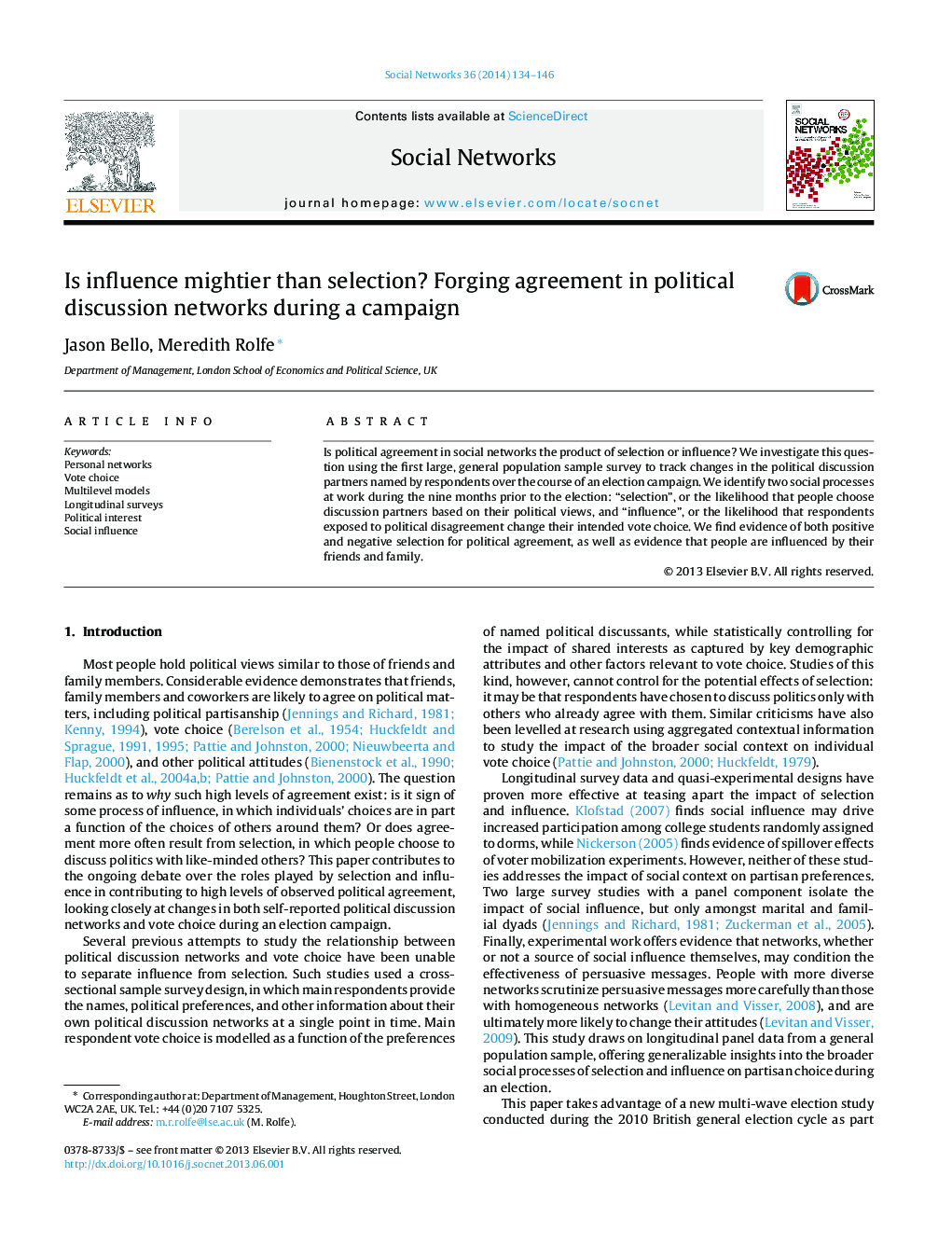| Article ID | Journal | Published Year | Pages | File Type |
|---|---|---|---|---|
| 1129209 | Social Networks | 2014 | 13 Pages |
•We track changes in named political discussants and respondent vote choice.•Strong partisans are less likely to continue to discuss politics with friends and family who disagree with them.•Other respondents are more likely to continue to discuss politics with friends and family who disagree with them.•Spouses who disagree are more likely to continue to discuss politics than spouses who agree.•Weak partisans with high political interest are most likely to be influenced.
Is political agreement in social networks the product of selection or influence? We investigate this question using the first large, general population sample survey to track changes in the political discussion partners named by respondents over the course of an election campaign. We identify two social processes at work during the nine months prior to the election: “selection”, or the likelihood that people choose discussion partners based on their political views, and “influence”, or the likelihood that respondents exposed to political disagreement change their intended vote choice. We find evidence of both positive and negative selection for political agreement, as well as evidence that people are influenced by their friends and family.
